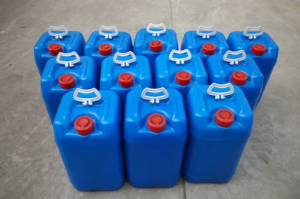Textile Enzyme Chemical Product Description
Textile enzymes are specialized biocatalysts used in the textile industry to enhance the processing of fabrics and fibers. These enzymes facilitate various chemical reactions, leading to improved fabric quality, reduced processing times, and lower environmental impact. Common types of textile enzymes include cellulases, amylases, proteases, and lipases, each serving distinct purposes in textile processing.
Uses of Textile Enzymes
- Desizing: Amylases are used to remove starch-based sizing agents from fabrics, ensuring a clean surface for dyeing and finishing.
- Bio-polishing: Cellulases help in the bio-polishing of cotton and other cellulosic fibers, resulting in a smoother surface and enhanced luster.
- Stone Washing: Cellulases are also employed in the stone-washing process to achieve a worn look on denim without the use of harsh chemicals.
- Scouring: Proteases are used to remove protein-based impurities from wool and silk, improving the overall quality of the fabric.
- Dyeing: Enzymes can assist in the dyeing process by improving the uptake of dyes and reducing the need for harsh chemicals.
Technical Data
| Property | Description |
|---|---|
| Enzyme Type | Cellulase, Amylase, Protease, Lipase |
| Form | Liquid or Powder |
| pH Range | 4.0 – 9.0 |
| Temperature Range | 30°C – 60°C |
| Activity Level | Varies by enzyme type (e.g., 10,000 – 100,000 U/g) |
| Stability | Stable under recommended storage conditions |
| Application Method | Batch or Continuous Process |
| Environmental Impact | Biodegradable, reduces chemical usage |
Key Benefits
- Eco-Friendly: Reduces reliance on harmful chemicals, promoting sustainable textile processing.
- Cost-Effective: Minimizes water and energy consumption, leading to lower operational costs.
- Quality Improvement: Enhances the aesthetic and functional properties of textiles, resulting in higher-quality end products.
- Versatility: Applicable across various textile types, including cotton, wool, silk, and synthetic fibers.
In summary, textile enzymes play a crucial role in modern textile processing, offering a range of benefits that align with the industry’s shift towards sustainability and efficiency. Their ability to improve fabric quality while reducing environmental impact makes them an essential component in the textile manufacturing process.

